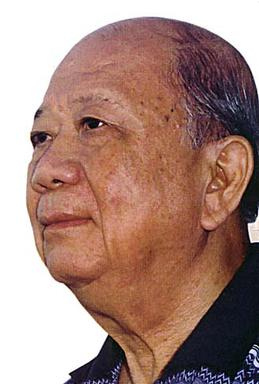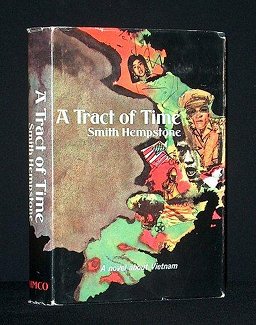Related Research Articles

The Malayan Union was a union of the Malay states and the Straits Settlements of Penang and Malacca. It was the successor to British Malaya and was conceived to unify the Malay Peninsula under a single government to simplify administration. Following opposition by the ethnic Malays, the union was reorganised as the Federation of Malaya in 1948.

Malaysian Chinese, alternatively Chinese Malaysians, are Malaysian citizens of Han Chinese ethnicity. They form the second-largest ethnic group, after the Malay majority, and are 22.8% of the Malaysian population. Most of them are descendants of Southern Chinese immigrants who arrived in Malaysia between the early 19th and the mid-20th centuries. Malaysian Chinese form the second largest community of Overseas Chinese in the world, after Thai Chinese. Malaysian Chinese are traditionally dominant in the business sector of the Malaysian economy.

Malcolm John MacDonald was a British politician and diplomat. He was initially a Labour Member of Parliament (MP), but in 1931 followed his father Ramsay MacDonald in breaking with the party and joining the National Government, and was consequently expelled from the Labour Party. MacDonald was a government minister during the Second World War and was later Governor of Kenya.

Chin Peng, born Ong Boon Hua, was a Malayan communist politician and anti-fascist activist, who was the long-time leader of the Malayan Communist Party (MCP) and the Malayan National Liberation Army (MNLA).

Tun Sir Tan Cheng Lock KBE, SMN, DPMJ, JP was a Malaysian Peranakan businessman and a key public figure who devoted his life to fighting for the rights and the social welfare of the Chinese community in Malaya. Tan was also the founder and the first president of the Malayan Chinese Association (MCA), which advocated his cause for the Malayan Chinese population.

The Malayan tiger is a tiger from a specific population of the Panthera tigris tigris subspecies that is native to Peninsular Malaysia. This population inhabits the southern and central parts of the Malay Peninsula and has been classified as nationally critically endangered. As of April 2014, the population was estimated at 80 to 120 mature individuals with a continuous declining trend.
Ketuanan Melayu is a political concept that emphasises Malay preeminence in present-day Malaysia. The Malays of Malaysia have claimed a special position and special rights owing to their longer history in the area and the fact that the present Malaysian state itself evolved from a Malay polity. The oldest political institution in Malaysia is the system of Malay rulers of the nine Malay states. The British colonial authorities transformed the system and turned it first into a system of indirect rule, then in 1948, using this culturally based institution, they incorporated the Malay monarchy into the blueprints for the independent Federation of Malaya.

Malay nationalism refers to the nationalism that focused overwhelmingly on the Malay anticolonial struggle, motivated by the nationalist ideal of creating a Bangsa Melayu. Its central objectives were the advancement and protection of Malayness: religion (Islam), language (Malay), and royalty. Such pre-occupation is a direct response to the European colonial presence and the influx of a foreign migrant population in Malaya since the mid-nineteenth century.

The Malayan civet, also known as the Malay civet and Oriental civet, is a viverrid native to the Malay Peninsula and the islands of Sumatra, Bangka, Borneo, the Riau Archipelago, and the Philippines. It is listed as "Least Concern" by IUCN as it is a relatively widely distributed, appears to be tolerant of degraded habitats, and occurs in a number of protected areas.

The State of Penang, one of the most developed and urbanised Malaysian states, is located at the nation's northwest coast along the Malacca Strait. Unlike most Malaysian states, the history of modern Penang was shaped by British colonialism, beginning with the acquisition of Penang Island from the Sultanate of Kedah by the British East India Company in 1786. Developed into a free port, the city state was subsequently governed as part of the Straits Settlements, together with Singapore and Malacca; the state capital, George Town, briefly became the capital of this political entity between 1826 and 1832. By the end of the 19th century, George Town prospered and became one of the major entrepôts in Southeast Asia.
Professor Anthony John "Tony" Stockwell, FRAS is a British academic. He is best known for his research into the history of British imperialism and decolonisation in Southeast Asia.
The All-Malaya Council of Joint Action (AMCJA) was a coalition of political and civic organisations in Malaya formed to participate in the development of a constitution for post-war Malaya in preparation for independence and to oppose the Constitutional Proposals for Malaya which eventually formed the basis of the Federation of Malaya Agreement.

A Tract of Time is an antiwar novel from 1966 by Smith Hempstone, that covers the time period about 1960, when there was an attempted coup of South Vietnamese President Ngo Dinh Diem. Even as the United States backed Diem's government during the war, its American advisers worked with the Montagnard people who opposed Diem, to help them fight the Viet Cong, whom they also opposed. The book follows one CIA operative, Harry Coltart, as he works with the Montagnard mountain tribesmen in the Central Highlands. Harry is initially successful in getting the Montagnards to fight against the Viet Cong, but then the Montagnards are betrayed and South Vietnamese troops are sent in. Harry has to be rescued as the Montagnards join the Viet Cong.

The Penang Chinese Chamber of Commerce, established in June 1903, was the first Chinese Chamber of Commerce in Malaya.

Singaporeans are the citizens and nationals of the sovereign island city-state of Singapore. Singapore is home to a people of a variety of ethno-racial origins, with the city-state itself being a multi-racial, multi-cultural, multi-religious, and multi-lingual country. Singaporeans of Chinese, Malay, Indian and Eurasian descent have made up the overwhelming majority of the population since the 19th century. The Singaporean diaspora is also far-reaching worldwide.
Malaysian Tamil, also known as Malaya Tamil, is a local variant of the Tamil language spoken in Malaysia. It is one of the languages of education in Malaysia, along with English, Malay and Mandarin. There are many differences in vocabulary between Malaysian Tamil and Indian Tamil.

Malaysians are citizens who are identified with the country of Malaysia. Although citizens make up the majority of Malaysians, non-citizen residents and overseas Malaysians may also claim a Malaysian identity.
Security Intelligence Far East (SIFE) was a British intelligence organization created in 1946 as the Far Eastern regional headquarters of the Security Service, MI5. It was based in British-controlled Singapore and established by Colonel Cyril Egerton Dixon, a career MI5 officer with a great deal of war time counter intelligence experience in Britain and India. SIFE was also a MI5 controlled organisation, which partially merged its counterintelligence section with the regional headquarters of MI6 in 1950. SIFE controlled a number of MI5 Defence Security Officers in Singapore, Kuala Lumpur, Malaya and across the Far East.

Swettenham Pier is a pier within the city of George Town in Penang, Malaysia. Established in 1904, it is the busiest port-of-call in Malaysia for cruise shipping. The pier plays a vital role as a major entry point for tourists into Penang, aside from the Penang International Airport and land connections.

The Port of Penang is a deepwater seaport within the Malaysian state of Penang. It consists of terminals along the Penang Strait, including five in Seberang Perai and one in George Town. The Port of Penang was the third busiest harbour in Malaysia in terms of cargo as of 2017, handling 1.52 million TEUs of cargo, as well as the busiest port-of-call within the country for cruise shipping.
References
- "Colonial Office Records relating to the meetings of the Communities Liaison Committee, April 1949 to September 1949: CO 717/183" In Christie, Clive J. (1998) Southeast Asia in the Twentieth Century: A Reader Tauris, London, pp. 193–198 ISBN 1-86064-063-X
- "Communities Liaison Committee Communiqué, 16 September 1949 - Public Relations, Singapore, Press Release No. SE49/168" In Christie, Clive J. (1998) Southeast Asia in the Twentieth Century: A Reader Tauris, London, pp. 199–201 ISBN 1-86064-063-X
- "Statement on Federal Citizenship issued by the Communities Liaison Committee, 18 April 1950" In Gott, Richard; Major, John and Warner, Geoffrey (eds.) (1973) Documents on International Affairs Royal Institute of International Affairs, Oxford University Press, London, p. 592, OCLC 1566847
|}